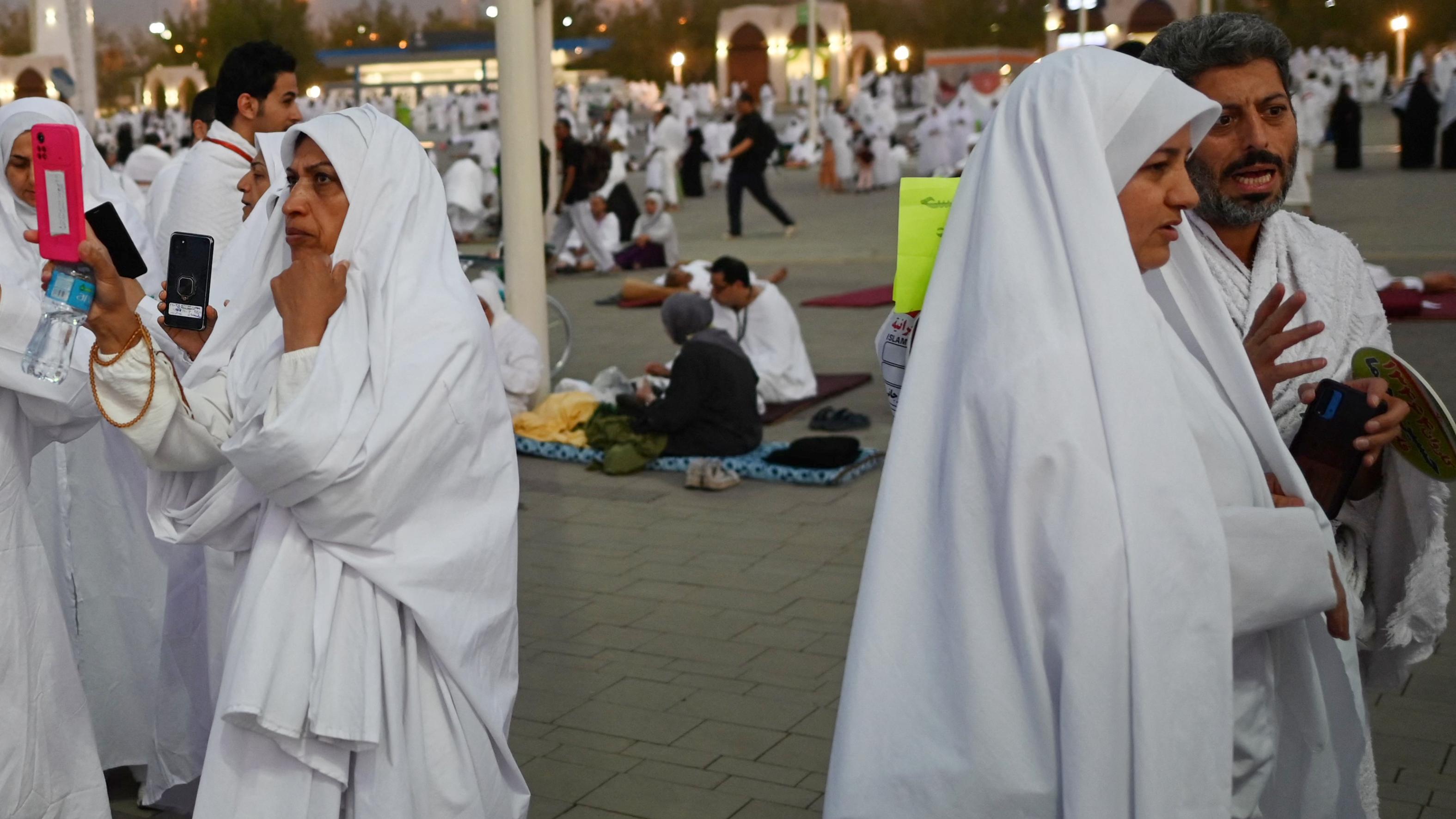 Iranian Muslim pilgrims head to Saudi Arabia's Mount Arafat, also known as Jabal al-Rahma or Mount of Mercy, during the climax of the Hajj pilgrimage on June 27, 2023. (PHOTO / AFP)
Iranian Muslim pilgrims head to Saudi Arabia's Mount Arafat, also known as Jabal al-Rahma or Mount of Mercy, during the climax of the Hajj pilgrimage on June 27, 2023. (PHOTO / AFP)
With the ambassadors of Saudi Arabia and Iran starting their highly-anticipated mission in the respective capitals on Sept 5, this milestone in their relations will enable deeper engagements that will be conducive to regional peace and development, analysts say.
Jasim Husain, a Gulf analyst and former member of Bahrain's Parliament, told China Daily that the actual exchange of the ambassadors “is a translation of the China-brokered deal between the two countries”.
The Gulf analyst noted the importance of socioeconomic and sociopolitical developments, such as oil prices or the situations in Libya, Yemen, Iraq, and Lebanon, and with Israel
He said it was a very positive development between two important countries in the region and decreased tensions between the neighbors will make the Middle East a better place to live and do business.
READ MORE: Saudi crown prince, Iran foreign minister discuss cooperation
Abdullah bin Saud Al-Anzi, Saudi Arabia’s ambassador to Iran, arrived in Teheran on Sept 5, the same day Iranian Ambassador to Saudi Arabia Alireza Enayati arrived in Riyadh.
Upon Al-Anzi’s arrival in Teheran, he emphasized the need to enhance relations and intensify communication and meetings between the kingdom and Iran, and to expand Saudi-Iranian relations toward broader horizons, the Saudi Press Agency (SPA) reported.
"Both the kingdom and Iran are neighboring countries with abundant economic resources, natural resources and advantages that contribute to enhancing development, prosperity, stability, and security in the region," the ambassador was quoted as saying by the SPA.
Saudi Arabia's Vision 2030 was also on top of the Saudi envoy’s agenda, which he said represents “a roadmap that encompasses all aspects upon which both countries can build their cooperation”.
In March, Saudi Arabia and Iran restored their relations through Chinese diplomacy, after a seven-year break, triggered by attacks on the Saudis’ diplomatic missions in Iran following the kingdom’s execution of a Shiite cleric.
The two countries agreed to reopen their embassies and missions within two months, and announced in April the resumption of diplomatic relations with immediate effect.
“Certainly, there will be issues of exchange between the two countries. The presence of ambassadors allows the two countries to engage directly face-to-face without going through intermediaries. I’m certain there will be issues and developments requiring coordination and exchange of views between Saudi Arabia and Iran,” said Husain.
The Gulf analyst noted the importance of socioeconomic and sociopolitical developments, such as oil prices or the situations in Libya, Yemen, Iraq, and Lebanon, and with Israel.
There are “always issues that will require the two countries to engage,” he said.
Dina Yulianti Sulaeman, director of the Indonesia Center for Middle East Studies, told China Daily that the latest development was “good news”. It proved that the normalization of relations between the two Middle Eastern countries mediated by China in March “was not merely ceremonial but has continued at the implementation stages”.
“The commencement of the diplomatic mission of the two countries also needs to be seen as part of the world's geopolitical shift, in which the US is increasingly being left behind. What's more, Iran and Saudi Arabia have joined the BRICS, strengthening an alternative axis in the face of collective Western domination,” said Sulaeman.
BRICS refers to the grouping comprising Brazil, Russia, India, China and South Africa.
“Countries in West Asia will become increasingly united and dare to determine an independent foreign policy, no longer subordinated to the West,” she added.
Jawaid Iqbal, chairman of the Department of West Asian and North African Studies at Aligarh Muslim University in India, told China Daily that the envoys’ assumption of their respective offices “marks a significant shift in the geopolitical landscape of the Arab world”, recalling a “turbulent history of Iran-Saudi relations” that he traced back to 1988.
It was when Saudi Arabia’s support of Iraq during the Iran-Iraq war resulted in the severing of diplomatic ties. This war, which Iqbal said was a devastating conflict “that drained the resources of the Middle East”, primarily served the interests of the imperialist military-industrial complex.
“While the United States has often operated by creating chaos, the new post-unipolar order is actively seeking non-militarist solutions. This shift is exemplified by the Saudi-Iranian de-escalation efforts in Yemen and the re-establishment of ties with Syria,” said Iqbal.
“The latter, previously regarded as a pariah state due to its alignment with the anti-West ‘Axis of Resistance’, is now finding a place in this evolving geopolitical landscape,” he added.
Prior to the envoys of the two countries restarting their missions, the diplomatic breakthrough has already made its impact felt outside the political arena.
READ MORE: Saudi foreign minister begins first visit to Iran after ties resumed
The Asian Football Club (AFC) said on Sept 4 that all matches between the national teams and clubs of the Saudi Arabian Football Federation (SAFF), and the Football Federation Islamic Republic of Iran (FFIRI), will take place on a home-and-away basis.
“The AFC welcomes the historic move as it reflects the commitment of both the SAFF and FFIRI toward fostering closer ties between their respective footballing communities, allowing clubs to host matches on their home turf and visiting the respective away stadiums, creating a more engaging and exciting experience for the fans and players alike,” the AFC said in a statement.
“Passionate fans across Saudi Arabia, IR Iran and the whole of Asia can now look forward to a thrilling new chapter in club and national team football as teams from SAFF and FFIRI compete in the spirit of competition and camaraderie,” it added.
Contact the writer at jan@chinadailyapac.com


